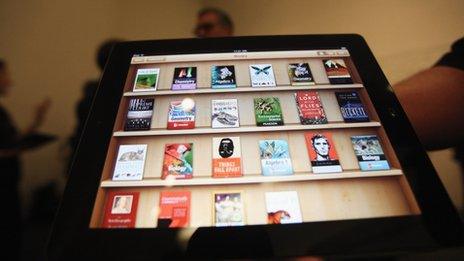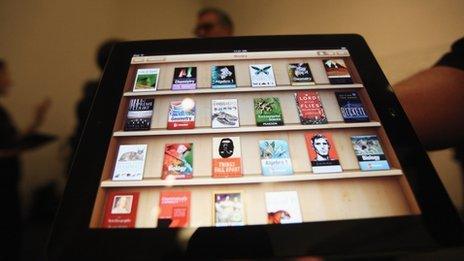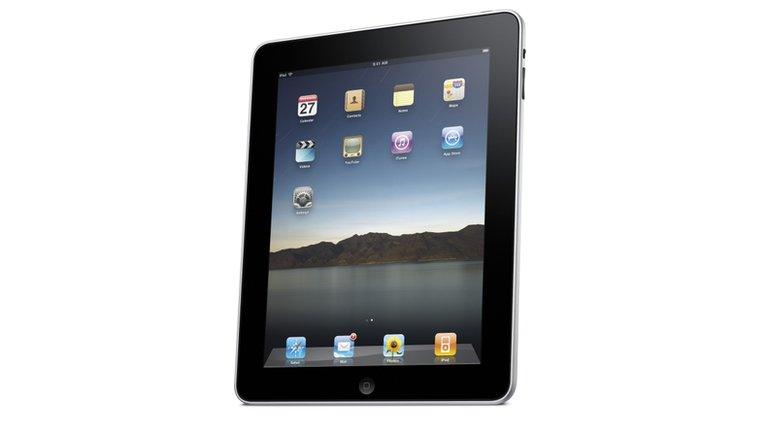Apple agrees to settle e-book price-fixing dispute
- Published

Apple says it has more than two million books in its iBooks store
Apple has agreed an out-of-court settlement in a case in which it was being sued by consumers who overpaid for e-books due to price-fixing between the tech giant and publishers.
A court document filed in New York says a "binding agreement" has been reached.
The amount of compensation offered by Apple is not revealed, but the litigants were thought to have been seeking up to $840m (£495m).
Apple has consistently denied any wrongdoing over e-book pricing.
The impending trial, in which 33 US states and territories were seeking reparations from Apple on behalf of their citizens, was linked to a separate ruling last year, where a judge said Apple had violated anti-trust laws by striking deals to enable them to charge a higher price for some e-books in its online store.
As well as the authorities taking action, several individuals from across the US were also seeking compensation for overpaying in their e-book purchases.
The allegation was that Apple, a distributor of e-books, had illegally conspired with five of the biggest publishers to stop Amazon - a dominant force in the market - selling titles at a loss.
Previously, publishers had sold e-books to distributors at a wholesale price, with retailers such as Amazon and Apple able to set their own sale prices.
But the court case heard that the publishers (Hachette Book Group, HarperCollins Publishers, Penguin Group (USA) Inc, Macmillan and Simon & Schuster Inc) had agreed with Apple to move to an "agency model," in which the publishers agree a minimum retail price with distributors, thus preventing them from offering titles at a loss.
However Apple denied that it was involved in price-fixing, accusing plaintiffs of "false accusations", and is in the process of challenging last July's ruling.
The publishers agreed to pay more than $166m to settle charges brought against them.
The out-of-court settlement marks an about-turn from Apple, whose chief executive, Tim Cook, had previously dismissed the idea of reaching an agreement.
The firm declined to comment on the decision.
Any deal is subject to the outcome of Apple's appeal of last year's case.
- Published10 July 2013

- Published9 August 2013

- Published2 August 2013
